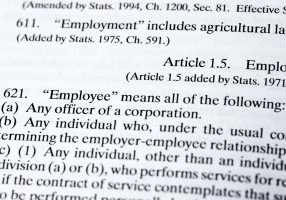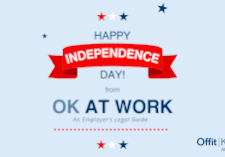Bankruptcy Litigation with an Advantage
We approach bankruptcy litigation cases aggressively, efficiently, and we do not believe that one approach works in all cases. Whether you need us to assert a claim against a debtor or defend a lawsuit against you by a debtor or trustee, we will provide you with an initial assessment of the case. This initial assessment includes both the benefits and the risks that are foreseeable at the outset of the case, as well as a projected budget of the legal expenses so you can make prudent and informed decisions. Throughout the various stages of the litigation, we will reassess your case and adjust our litigation strategy as needed to provide you with the most advantageous position. At the same time that we vigorously serve as your advocate, when feasible, we will keep the door open for negotiating a compromise and settlement that you find acceptable.
What We Do
Bankruptcy litigation is different than a typical lawsuit where one or more parties file a lawsuit against one or more parties in order to obtain a money judgment for damages. Chapter 11 bankruptcy proceedings are a series of hearings, starting with “first day motions,” brought by the Debtor-in-Possession (DIP) before most creditors are prepared to respond. Some of the hearings may only affect certain constituents, such as suppliers or landlords, but each step shapes the outcome of the case. A creditor may file its proof of claim and not receive any notices from the debtor or the court that appear important for over a year. And then receive an objection to the claim or a demand for turnover of funds from the debtor or a trustee. Suddenly, the creditor is required to defend its claim and defend a lawsuit brought by the debtor or a trustee requesting that the creditor is required to repay whatever payments it received prior to the bankruptcy filing. Our bankruptcy attorneys who regularly appear in court will be your advocate in any of these circumstances.
- Preference Actions. You finally get paid by a slow-pay customer, who then files bankruptcy. You receive a demand for a return of the payment from the debtor or a bankruptcy trustee.
- Fraudulent Transfer Actions. Your company closes on a complicated business transaction and, subsequently, one of the other parties to the transaction files bankruptcy. Your company has been served with a lawsuit to unwind the transaction and/or recover money damages.
How We Do It
We approach bankruptcy litigation cases aggressively, efficiently, and we do not believe that one approach works in all cases. Whether you need us to assert a claim against a debtor or defend a lawsuit against you by a debtor or trustee, we will provide you with an initial assessment of the case. This initial assessment includes both the benefits and the risks that are foreseeable at the outset of the case, as well as a projected budget of the legal expenses so you can make prudent and informed decisions. Throughout the various stages of the litigation, we will reassess your case and adjust our litigation strategy as needed to provide you with the most advantageous position. At the same time that we vigorously serve as your advocate, when feasible, we will keep the door open for negotiating a compromise and settlement that you find acceptable.
Who We Do It For
We regularly represent our clients in state and federal bankruptcy courts. For more about the business restructuring and corporate governance aspects of our business bankruptcy group, visit here.






































